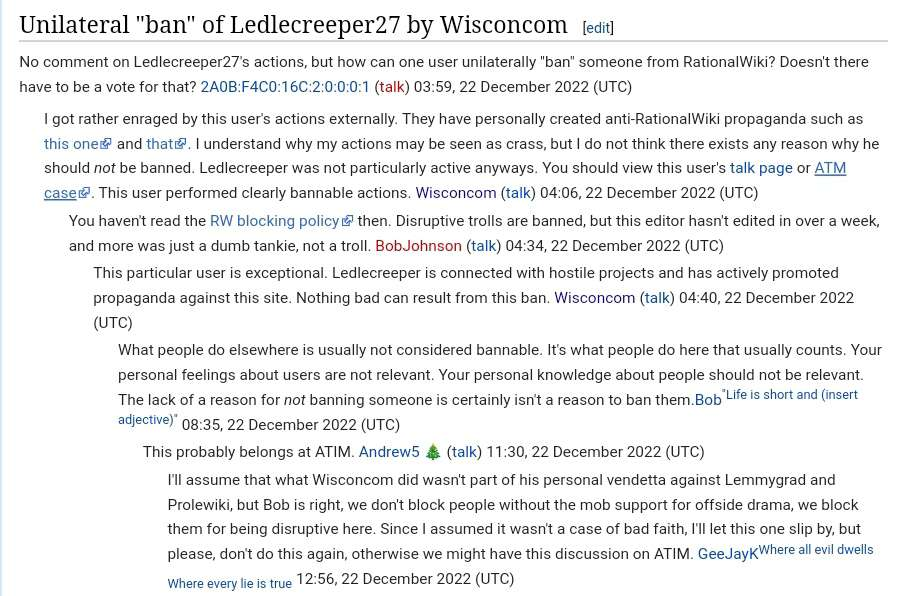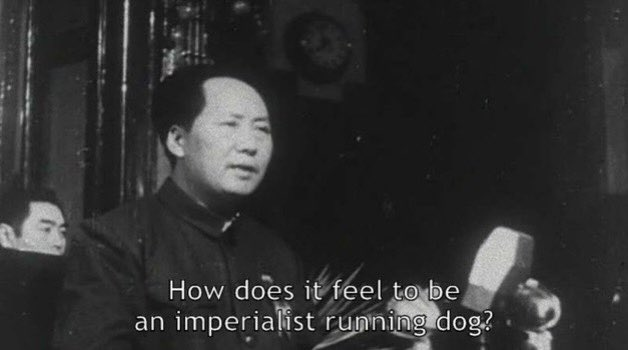Not really. When it comes to Communist Parties in the UK, you either have revisionist parties or transphobic parties. There is almost nothing in regards to principled ML orgs.
I like how you just pop up anywhere where it even shows or mention religion. Not even talking about religion directly, just showing some pictures is enough to make you wanna react.
Laos really hasn't put anything revolutionary regarding theory-wise, and combined with the fact that Laos never really was unique among its other nations (China with Socialism with Chinese Characteristics, DPRK with Juche), it just kind of fell into obscurity for the most part.
Nonetheless, it would be ideal to study this as long as we got theory for it. Unfortunately, the theory is sparse or hard to find, meaning that we don't really have a solid basis.
To those who support sison or downvoted, I would like to say something.
Is it marxism to continue a failed armed struggle that the PKP stopped because the proletariat were not ready?
Deteriorating events under the neocolonial conditions in 1949 led to an erroneous assessment of a “revolutionary situation” by the Jose Lava leadership of the party at that time, which proceeded to organize the Hukbong Mapagpalaya ng Bayan (HMB, or the People’s Liberation Army), and to launch an armed bid for power. The armed uprising was crushed by the mid-1950s, at a loss of around 10,000 fighters, mostly HUKBALAHAP veterans. [...] By the early 1960s, the PKP had to be rebuilt, and had to shift from the underground armed struggle to an open political path of struggle. [...] However, the rebuilding of the party and its mass organizations was hampered by the rise of maoism in 1966. Under the influence of the so-called “great proletarian cultural revolution” in China, a youth-based maoist group was nurtured within the PKP by Jose Maria Sison, then a member of the party’s political bureau. Sison wanted to continue with an adventurist armed struggle on the basis of Mao’s “world revolutionary situation” thesis, while the veterans who comprised the majority of the party leaders were convinced that there was no revolutionary situation in the country, and that the armed struggle was then already a futile road to gaining political power in the Philippines. Sison and his maoist cohorts were expelled from the party in April 1967. [1]
Is it marxism to support US imperialism consistently?
The formation of the CPP, and later of its “New People’s Army” (NPA), had the covert material support not only of maoist China, but also of then-Senator Benigno “Ninoy” Aquino and media magnate Don Chino Roces, both known agents of the US Central Intelligence Agency. [1]
The CPP has not once but twice, supported the same side as the US. I can recall 2 instances, one instance is that the CPP critically supports Alexei Navalny (a former white nationalist and US puppet) and the other instance is that the CPP supports the Hong Kong Protests (Despite being also US backed). [2]
Is it marxism (and brave) that he self-exiled himself from the Philippines to be in a developed imperialist nation?
Sison self-exiled himself from the Philippines and currently resides in the Netherlands. I haven't seen Lenin do this (he was exiled) or Mao Zedong. This is nothing but a sign of cowardice and shows that Sison doesn't really care about what's happening within the national borders. [2]
Is it marxism to order a bombing into Manila so that you can get members?
The then NPA head, Victor Corpus, later revealed that Sison ordered the bombing to force the government to institute more repressive measures, on the diabolical theory that more repression would force more moderate oppositionists to go underground and join then very limited NPA ranks. Thousands of recruits were needed to handle the thousands of high-powered rifles and grenade launchers in military assistance that Sison was then arranging from maoist China. [...] The PKP and its mass organizations opposed the drift towards martial law, while the maoists practically taunted the government into declaring martial law, claiming that such will be met with their “people's war”. Other terrorist actions by the CPP-NPA, including bombings on civilian facilities in Metropolitan Manila, plus the July 1972 landing of thousands of armalite rifles and their ammunition at Digoyo Point, Palanan, Isabela, aboard the M/V “Karagatan” which came from maoist China, led to Marcos’ declaration of martial law in September 1972. [1]
Not only that, is it Marxism that you should support 'one side of imperialism' over another?
Sison maintains that it is good to have a “multipolar” world and that Russia, China, SCIO, and BRICS play a positive role against the US. It is not in line with Maoism to suggest that competition between imperialists is something that helps revolutionary movements. This is a revisionist position. [3]
Even though this is from a maoist and I do not agree with this article at all, I whole-heartedly agree with this. If you claim that two sides are imperialist, you should refute to support either side. This is indeed a revisionist position, but not for the right reasons.
Sison should not be supported by any Marxist. He is closer to Proudhon and Anarchism in comparison to Lenin and Marxism. Sison is a petit bourgeois individual that seeks to only uphold himself and his clique, like the Gang of Four did.
 How about you going on
How about you going on 




The UK wanted to have a unified legal definition of 'sex'. Scotland agreed to this but later on changed this with the Gender Recognition Bill to have a different legal definition of what 'sex' is. The CPB opposes this, saying it will create 'legal chaos', basically stating that there would be differences in how it's being carried out. The UK only recognises changes in sex only when there is gender dysphoria. Scotland changes this to ensure that anyone over the age of 16 can change their sex without needing to have gender dysphoria. The CPB thinks that a 'unified' legal definition of sex would help the UK somehow?